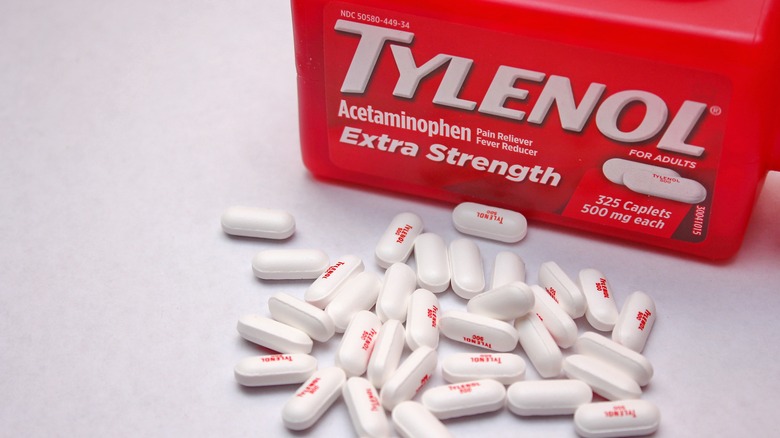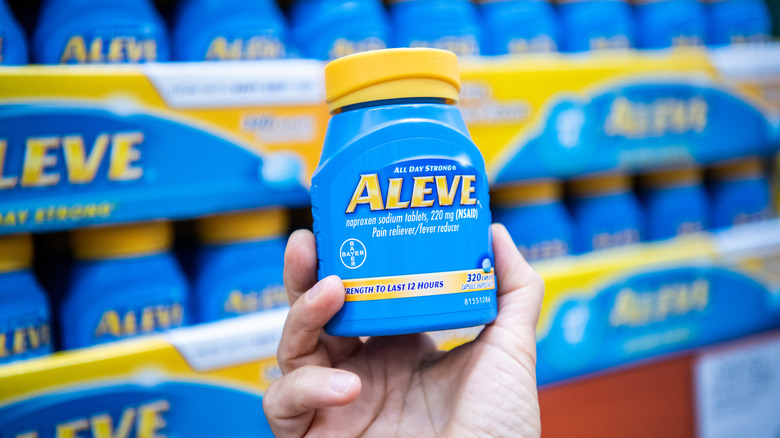Is It Safe To Take Tylenol If You Have High Blood Pressure?
Acetaminophen, also known by the brand name Tylenol, is a drug used to treat moderate pain such as a headache or toothache, as well as reduce fevers, according to WebMD. Side effects of Tylenol are similar to other over-the-counter (OTC) pain-relief medications, and include nausea, stomach pain, loss of appetite, and itching, among others, according to RxList.
Many people don't realize that many pain-relief drugs also have another side effect — raising your blood pressure. Obviously, this can be dangerous. The risks of high blood pressure, especially when combined with other comorbidities, are numerous, including heart attack and damage to blood vessels, according to Mayo Clinic. High blood pressure is defined as being 130/80 or higher, according to the American Heart Association. If you have high blood pressure, you may consider avoiding OTC painkillers unless absolutely needed. But what about Tylenol? Is it safe to take acetaminophen if you have high blood pressure?
Certain pain-relief drugs will raise blood pressure
Certain pain-relief drugs will raise blood pressure, so people with high blood pressure should avoid them, specifically aspirin, ibuprofen (i.e. Advil, etc.), and naproxen sodium (Aleve), according to Mayo Clinic. They do this by causing your body to retain water, which causes fluids to build and drives your blood pressure upwards, as well as potentially causing kidney problems. This is why if you look on the back of many bottles of pain-relief drugs, there is a warning telling you not to exceed a certain dosage due to damage to your kidneys.
However, despite the risks of increasing blood pressure that some OTC pain relievers carry, Tylenol is one type of pain relief drug that does not raise blood pressure, according to WebMD. Acetaminophen may be recommended by your doctor for pain relief if you have high blood pressure for this reason. If you're still worried, there are many natural forms of pain relief, such as yoga, lavender essential oil, and ginger, according to Medical News Today.
Treat pain with natural remedies
There are many other options for natural pain relief if neither yoga or Tylenol are doing the trick. Many of these alternative pain relief methods also avoid having to take medication. For example, heat and ice are some of the most common ways to reduce pain. Applying an ice pack is extremely helpful in reducing swelling and inflammation after an injury, while heat reduces the stiffness from strained muscles, according to Healthline.
Another possible way to provide relief is acupuncture. It has been used in Asia for centuries and has since made its way to Western countries to help with headaches, menstrual cramps, and other painful ailments (per Harvard Health). It should be noted that the evidence regarding acupuncture is mixed; some researchers believe it to reduce pain, while others have not found evidence for its pain relief properties. However, the risks from acupuncture are very low if you go to a certified acupuncturist, so it may be worth a try to reduce your pain, according to Mayo Clinic.



